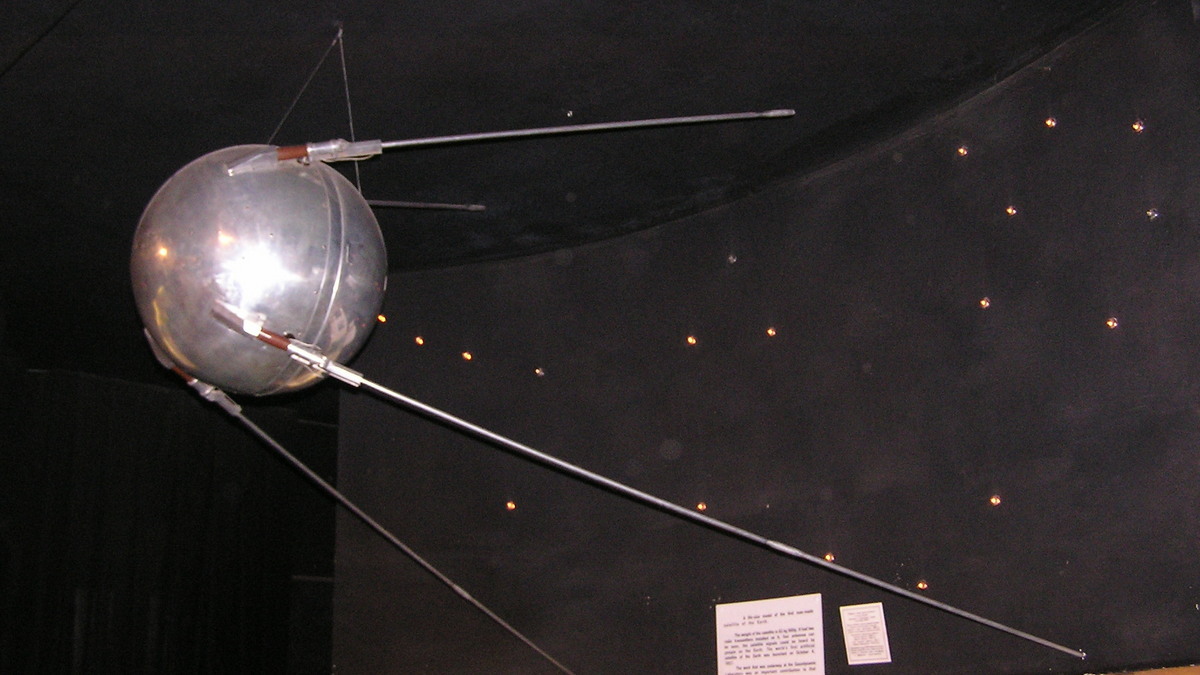On October 4, 1957, the world witnessed the dawn of the space race.
This came after the erstwhile Soviet Union launched Sputnik-1 into outer space. While the Soviet Union would go on to launch two more Sputnik satellites, nothing would yet again capture the imagination of the world’s public – until the United States astronauts made their fateful trip to the Moon in July 1969.
On October 4, 1970, Janis Joplin, the American singer-songwriter and rock icon, was found dead in her hotel room. Joplin, the 27-year-old, had exploded into the mainstream during the late 1960s – a heady time in America – armed with unique vocals, an aura of authenticity and a larger-than-life personality.
If you are a history geek who loves to learn about important events from the past, Firstpost Explainers’ ongoing series, History Today will be your one-stop destination to explore key events.
Here are the important and notable events that happened on this day in history
Sputnik-1 launched
The first man-made satellite sent into outer space was no bigger than a beach ball. The Soviet satellite, weighing 83.6 kilos, orbited the Earth in just 98 minutes on its elliptical path. The lead-up to the launch of the Sputnik-1 was punctuated by frantic efforts from the United States and the USSR. During the 1950s, scientists from both countries were working assiduously to build satellites, rockets and missiles. Interestingly, both the US and USSR were aided by efforts from German scientists – many of them Nazis.
While the US endured a string of dispiriting failures, the USSR witnessed success after success – beginning with Sputnik-1. Efforts in the Soviet Union were spearheaded by designer Sergei P Korolev. While he initially wanted to use an R-7 rocket to send a complex satellite to orbit, those plans fell through. Korolev then quickly redesigned a far simpler rocket. A test flight in September 1957 gave Russia the confidence to go ahead.
Then, on October 4, 1957, the Soviet Union made the historic announcement that it had put an artificial satellite into space. The development marked a turning point in history that is perhaps only rivalled by the creation of fire or the wheel. The US was left flabbergasted by the success of its major geopolitical rival. America responded by increasing its own efforts as well as creating the National Aeronautics and Space Administration (NASA) through an Act of Congress in October 1958.
Impact Shorts
More ShortsIn 1960, John F Kennedy would take power. Two years later, Kennedy made his famed ‘We Choose to go to the Moon’ speech, which inspired millions of young Americans and people around the world to look to the stars. America was in the space race in earnest now. Less than a decade later, man had taken his first steps on the Moon. Where we go next is anyone’s guess.
Janis Joplin dies
Janis Joplin was born on January 19, 1943 in Texas’ Port Arthur. Growing up in a middle-class family, Joplin was encouraged to hone her musical gifts even as she was bullied incessantly at school – essentially leading her to become a social outcast.
Joplin attended the Lamar State College of Technology and the University of Texas at Austin before dropping out in 1963 to play the blues in Texas clubs. She also hitchhiked to San Francisco – which is when she developed her penchant for a variety of drugs including meth and heroin.
By 1966, her career was taking off. While she began touring with a group called Big Brother and the Holding Company as the lead singer, that wouldn’t last. It was her performance at the Monterey International Pop Festival in 1967 that made her a bona fide rock star. However, her newfound fame and fortune only exacerbated her drinking and drug habits.
In 1970, while wrapping up her album Pearl, which would prove to be the biggest smash of her career, Joplin was found dead in a hotel room. The cause of death? Accidental heroin overdose. She was said to be holding a cigarette in one hand and money in the other. She was just 27 years old.
Incidentally, Joplin was the same age that Jimi Hendrix, Jim Morrison, Kurt Cobain, and Amy Winehouse would be at the time of their deaths – collectively known as the ’27 club’. One can only imagine how music history could have been reshaped if Joplin had survived.
This Day, That Year
1190. Richard I, known as the Lionheart, captures Messina in Sicily on his way to the Third Crusade. His rivalry with Saladin and his legendary chivalry would make his name famed throughout the world.
1582. The Gregorian calendar, named after Pope Gregory XIII, is introduced via papal bull. The calendar is based on the Julian calendar, which was developed by Julius Caesar.
1853. The Crimean War begins with the Ottoman Turks declaring war on Russia. The fighting, which would go on for two years, would see Britain and France join in and end with Russian defeat.
1989. Secretariat, the legendary racehorse, is euthanised at age 19 after suffering from laminitis, a painful hoof condition. Secretariat had won the Kentucky Derby, the Preakness Stakes, and the Belmont Stakes in 1973 – also known as the ‘Triple Crown’. A necropsy later revealed his heart was about twice the size of a normal horse’s.
2014. Haitian politician Jean-Claude ‘Baby Doc’ Duvalier dies in Port-au-Prince. The former dictator of Haiti was on trial for alleged human rights abuses at the time of his death.
)